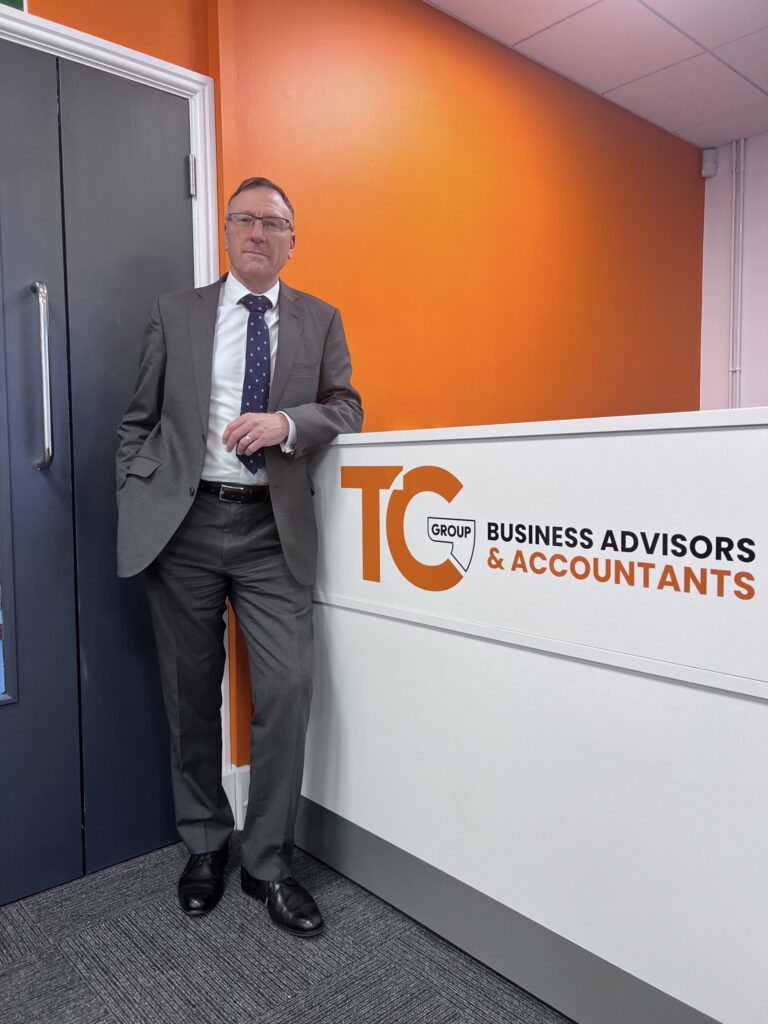TC Group is a long-established business advisory and accountancy firm with a wide range of services and expertise, well equipped to help business owners across the region navigate the changes announced in the Autumn Budget.
Delivering a first-class service to owner managed businesses, the local award-winning Corporate Finance Team, headed up by Patrick Faughnan, have been incredibly busy supporting business owners successfully complete sales of their businesses prior to October 30 2024, in anticipation of significant legislative changes impacting sellers taking immediate effect.
Reflecting on what the budget means for business owners and succession planning, Patrick said:
“Whilst there are changes to Business Asset Disposal Relief (BADR) which take effect from April 6, 2025 and immediate changes to the main rate of Capital Gains Tax rates, increasing to 24%, both directly impacting a seller’s exposure to tax, the changes announced weren’t as severe as we’d originally anticipated.”

With a window of opportunity for business owners to benefit from the current rate of BADR at 10% on the lifetime allowance of £1m, Paula Carter, Associate Director at TC Group, foresees that the M&A market will continue to be active but issues a word of caution around accelerating a sale prior to the next significant milestone of April 6, 2025.
Paula said: “If you’re in advanced negotiations with a third party buyer or embarking on an internal succession plan, such as a Management Buy Out, you’ll undoubtedly push for a pre-April 6, 2025 completion and the reality is, in a ‘friendly’ transaction, this should be achievable.
“However, the pressure to maintain deal momentum needs to be carefully balanced against not rushing important negotiations or being pressured to compromise on deal structures or valuations which ultimately could leave you short changed.”
Understanding a business’s worth and the factors impacting valuation should be top of the agenda for business owners when contemplating a sales process.
Patrick said: “In an attempt to align with a seller’s valuation expectations, potential buyers will assess the risks associated with your business model, such as reliance on key customers and suppliers and future maintainable earnings, together with their perceived return on investment.
“Whilst there are many external ‘uncontrollable’ factors which can impact valuation, such as views on long-term interest rates, shifts in economic conditions or regulatory environments, many factors are, however, in the control of a business owner to have a strategy in place to prepare for and an action plan to address.”
Paula added:
“For example, if you’ve never prepared forecasts before, our advice would be to start preparing these and tracking results now. With the increases to Employers National Insurance announced in the Autumn Budget, we, of course, understand the pressures faced by business owners. This is why a robust forecast won’t only allow the owners to consider the impact of rising costs, but also plan their strategy to maintain or increase future profits. A demonstrable track record in regular achievement of forecasts will inevitably instil confidence in a potential buyer, adding credibility to what may otherwise be viewed as overly optimistic forecasts.
“There are a number of things a business owner can do to put themselves in the strongest negotiating position. It’s all about planning early with what may seem to be the obvious things. Train your management team with the business skills required to thrive and grow. Maintain a watchful eye on the agendas of your key stakeholders including customers and suppliers, so that your offering remains closely aligned. Start to step back well in advance of a sale, although this should never be at the detriment of keeping a close eye on people, finances and systems – attention to the smallest detail matters.”
Planning early to protect value is also echoed by Trevor Shaw, Tax Advisory Director at TC Group, who said:
“The changes to Business Property Relief have shifted the goalposts when looking at the succession of family businesses to the next generation.
“As a result of the restrictions to Business Property Relief, families should consider succession to the next generation earlier than on death of the current owners. If the succession happens seven years or more before death of the current owners then it’s outside the scope of Inheritance Tax and the next generation, who’ll take control of the business earlier, can bring innovation and energy to the table to develop and help grow the business.”
Another succession option for business owners is a sale to an Employee Ownership Trust (EOT).
In light of the Autumn Budget, Patrick Faughnan said:
“We have seen a tightening up of rules around Employee Ownership Trust sales, particularly around the independence of trustees, and the period for Disqualifying Events extending to four full tax years. Furthermore, HMRC have removed the Tax Clearance process, and as such, ensuring owners have experienced tax advisors on hand during a EOT sale process is critical. In summary, these changes weren’t unexpected and are actually quite welcome.
“It’s also interesting to see that within the legislation, trustees now need to take reasonable steps to ensure the valuation doesn’t exceed market value. In doing so, understanding the basis and drivers of value has never been more important for an owner when considering their future exit.”

For family-owned businesses, it’s not always a given that these will be passed on to the next generation. Trevor added:
“So, there will need to be planning for an exit and it’s important that this is considered early.
“There are a number of steps that business owners can take to maximise the value they receive on sale and this can include offering key personnel in the business an equity stake, via tax efficient share purchase options that are exercised on the future sale and in doing so, rewarding these key personnel to drive growth and value in the business.”
In conclusion, Paula said:
“It’s clear that understanding valuation and planning early are inextricably tied, no matter which succession route you’re considering. One of our key offerings is a personalised Valuation Report for clients interested in understanding what their business is worth. It’s such a useful tool to help owners to step back, take stock and consider the value drivers within their own business, whilst promoting a wider discussion around developing strategies to enhance value, all with a watchful eye on that future exit.”
Find out more about TC Group on 01604 746760 or visit www.tc-group.com/offices/northampton/













